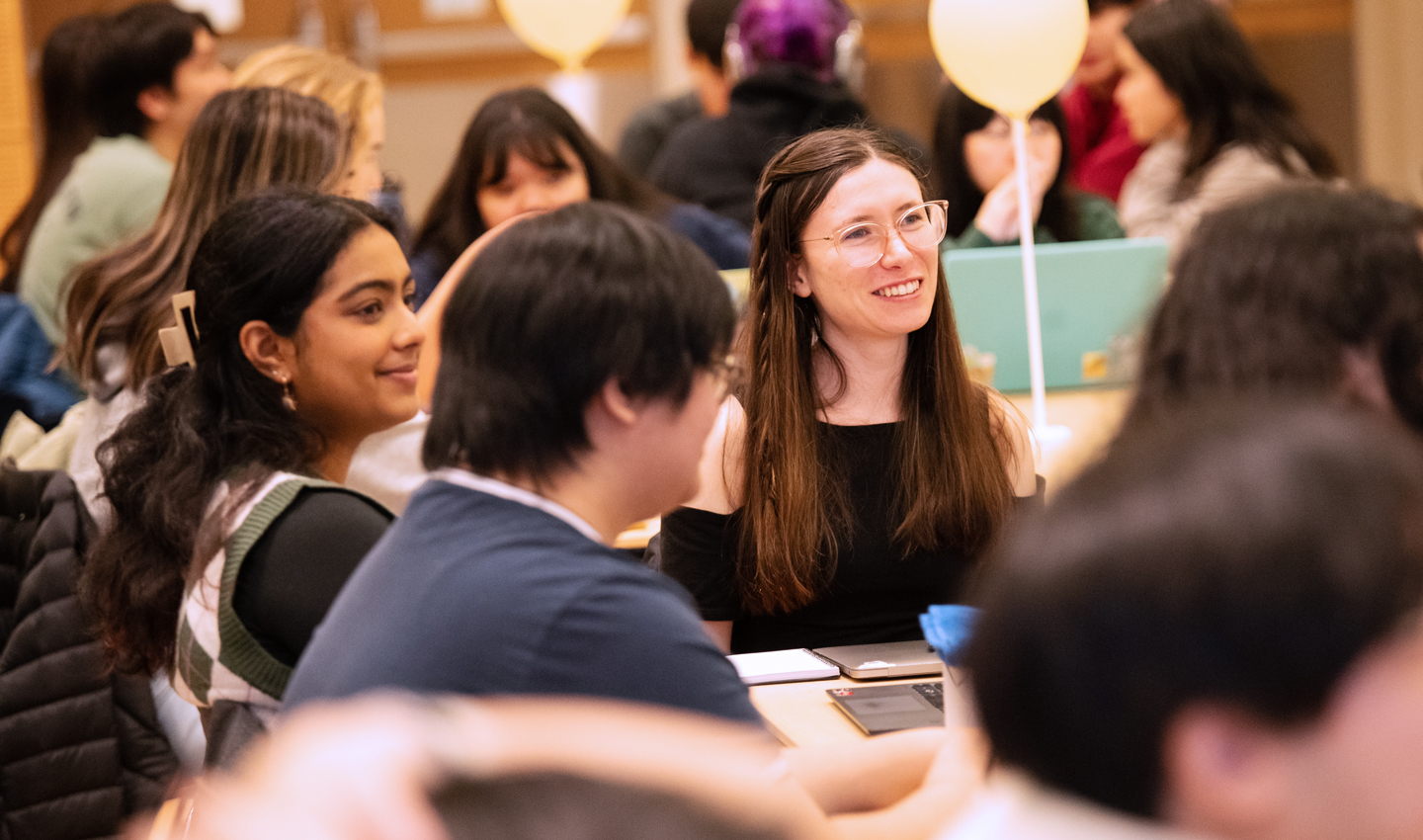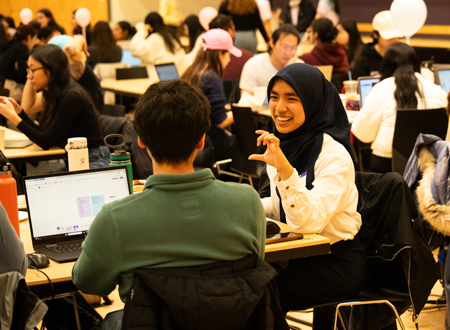 With close to 250 students participating and more than 100 on the waitlist, this year’s Winfo Hackathon was the biggest yet. Led by the Women in Informatics student group, the hackathon brought students to the University of Washington HUB on Jan. 27 to work on projects and develop solutions to a wide array of issues.
With close to 250 students participating and more than 100 on the waitlist, this year’s Winfo Hackathon was the biggest yet. Led by the Women in Informatics student group, the hackathon brought students to the University of Washington HUB on Jan. 27 to work on projects and develop solutions to a wide array of issues.
This year’s hackathon theme was “infinite possibilities and infinite solutions.” Keynote speaker Amy J. Ko, a professor in the Information School, kicked off the event emphasizing the value of the hackathon experience and celebrating human potential and creativity.
“Today you’re going to be teaching other people, you’ll write, you’ll imagine, you’ll critique, and you will do this because you imagine the world and you create it,” said Ko.
Allison Geary, a former Winfo president attending the hackathon now as a mentor, shared with participants her first hackathon experience.
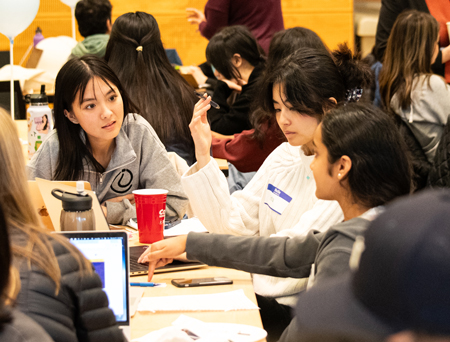 “I was so nervous to participate but I am so thankful I did and that I joined a group so passionate about women in technology,” said Geary. “The creativity and knowledge you get to experience at the hackathon is amazing and the opportunities I got to network and build industry skills as a student really helped shape my career goals later on.”
“I was so nervous to participate but I am so thankful I did and that I joined a group so passionate about women in technology,” said Geary. “The creativity and knowledge you get to experience at the hackathon is amazing and the opportunities I got to network and build industry skills as a student really helped shape my career goals later on.”
Winfo’s student leaders recruited an impressive network of sponsors, judges and mentors for the event, encouraging students to build their professional networks while learning new skills from people with industry expertise.
“For the past nine months, we’ve been working as a team to network with and acquire sponsorships for our hackathon. We are so thrilled to have eight different sponsors here with us today,” said Pournami Varma, an outreach specialist for the hackathon committee.
Winfo’s leadership team consists of co-presidents Lucy Lin and Roshni Srikanth, along with committee members and officers Daphne He, Brianna Pak, Mia Pham, Sloane Shea, Kayla Tounalom, Annie Tu, Pournami Varma, Kelly Wang and Hannah Yi.
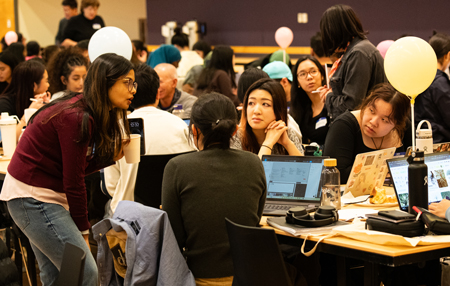 The purpose of the hackathon is to provide UW students the opportunity to learn new skills and explore computing in a beginner-friendly environment, appealing to students from all different majors. Among them was Rosita Rayid, a Microbiology major.
The purpose of the hackathon is to provide UW students the opportunity to learn new skills and explore computing in a beginner-friendly environment, appealing to students from all different majors. Among them was Rosita Rayid, a Microbiology major.
“I’m really interested in data and how to visualize it. Seeing this opportunity, I thought it would be a great way for me to gain some experience with the real-world applications of data and also learn from the work of other students here,” Rayid said.
Intended Informatics major Ricardo Torres shared similar learning goals. “I am looking forward to gaining experience working in a collaborative environment, building connections, and learning new skills,” said Torres.
Participants were asked to create new projects at the hackathon with representatives and alumni from leading companies, who assisted students through mentoring and Q&A sessions. Students were encouraged to think outside the box and push boundaries through their projects.
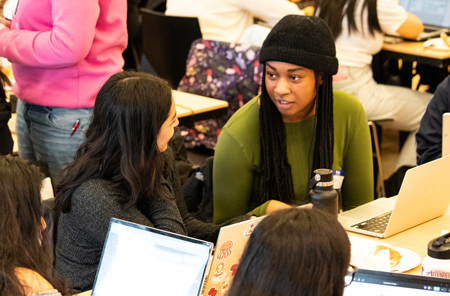 Amongst the wide selection of innovative and prize-worthy projects, the judges selected four winning teams. Best Design went to Chantria Im, Vega Jethani, Faith Samson, and Sophia Sfy for their project PalettePlay. The Best Impact award was given to Arushi Agarwal, Devanshi Desai, Anushka Nayak, and Aryan Palave for their project TownSquare. The recipients of the Best Coding Design were Jenny Pyon, Dixon Tan, and Chandra Tjhin for their app Wool. And the students behind the Best Overall award were the creators of DVA, Brenda Huynh, J.R. Lim, Marthin Mandig, and Julie Vu.
Amongst the wide selection of innovative and prize-worthy projects, the judges selected four winning teams. Best Design went to Chantria Im, Vega Jethani, Faith Samson, and Sophia Sfy for their project PalettePlay. The Best Impact award was given to Arushi Agarwal, Devanshi Desai, Anushka Nayak, and Aryan Palave for their project TownSquare. The recipients of the Best Coding Design were Jenny Pyon, Dixon Tan, and Chandra Tjhin for their app Wool. And the students behind the Best Overall award were the creators of DVA, Brenda Huynh, J.R. Lim, Marthin Mandig, and Julie Vu.
Check out this year’s Hackathon projects, courtesy of Winfo.
